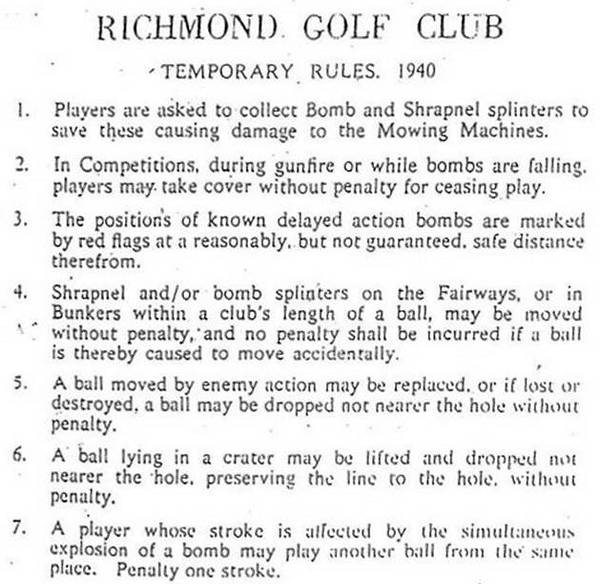The Latest from Boing Boing |  |
- Datacenter power use visualized
- State Dept adding intrusive, semi-impossible questionnaire for US passport applications
- Naipaul's rules for beginning writers
- Rules for golfing during the blitz
- Passover poem about robots: "When We Were Robots in Egypt"
- Hugo Nominees 2011
- Dr Seuss explains Christ's crucification
- Japan: "Safecast" DIY crowdsourced radiation project posts first mobile recon update
- DIY coffin
- Wikileaks publishes secret files on Gitmo prisoners
| Datacenter power use visualized Posted: 25 Apr 2011 04:52 AM PDT Servers don't run themselves. It takes juice—the electric kind—to keep the internet live, storing data and connecting visitors to websites, online services and social networks. The social media giant Facebook, for example, has nine third-party data centers in the US, with plans to build a tenth in Oregon. Current estimates are that Facebook uses 60,000 servers to help its more than 500 million members reconnect with people they didn't even like in high school. The company's data centers range from from 10,000 square feet to more than 35,000 square feet, and their energy use is enormous. The average leased data center uses between 2.25 megawatts of power and 6 megawatts of power. This could provide electricity for one month to somewhere between 1,730 and 4,615 homes. With their new data center, however, Facebook aims to lift a little of its guilt, saving approximately 2.5 million kilowatt hours per year with efficiency measures. They'll save the company $230,000 and takes over 1,000 tons of carbon emissions out of the air. Yahoo has also increased energy efficiency, using hydroelectric power. Google is thought to have 36 data centers, and the company claims they are among the most energy efficient in the world. Click the pic above to see the full graphic.  |
| State Dept adding intrusive, semi-impossible questionnaire for US passport applications Posted: 25 Apr 2011 12:45 AM PDT Olga sez, "The U.S. Dept of State is proposing a new Biographical Questionnaire for passport applicants: proposed new Form DS-5513 asks for all addresses since birth; lifetime employment history, personal details of siblings; mother's addresses prior to your birth; any "religious ceremony" around time of birth, circumstances of birth including names (as well as addresses/phone numbers) of persons present, & more. Failure to answer can mean denial of passport, & govt reserves right to use this info for 'routine uses.'" You've got the rest of today to submit your comments on this proposal. Lots of additional material at the link below. State Dept. wants to make it harder to get a passport (Image: US Passport, a Creative Commons Attribution (2.0) image from damian613's photostream) |
| Naipaul's rules for beginning writers Posted: 25 Apr 2011 01:09 AM PDT Here's VS Naipaul's seven-point program for beginning writers who want to get better at writing: 1. Do not write long sentences. A sentence should not have more than ten or twelve words.Click through for the rest. I agree with all of this as an exercise, but think that literature would be poorer if these rules were absolute (though #4 is iron-clad). |
| Rules for golfing during the blitz Posted: 25 Apr 2011 01:02 AM PDT  This sign was purportedly posted in 1940 in a north country British country club, regarding the special rules of play for bombed-out golf greens. This sign was purportedly posted in 1940 in a north country British country club, regarding the special rules of play for bombed-out golf greens. Stiff Upper Lip (via Neatorama) |
| Passover poem about robots: "When We Were Robots in Egypt" Posted: 25 Apr 2011 01:15 AM PDT Tor.com reprises Jo Walton's wonderful "When We Were Robots in Egypt," a Passover story for mechanical people, in verse. Other nights we use just our names,When We Were Robots in Egypt |
| Posted: 25 Apr 2011 01:06 AM PDT Congrats to the nominees for the 2011 Hugo Awards, to be presented at this year's World Science Fiction Convention in Reno, NV. I'll be there and rooting for my favorites! Here's a telling stat for you: "1006 valid nominating ballots were counted, 992 electronic and 14 paper." The Hugo Awards (via John McDaid) |
| Dr Seuss explains Christ's crucification Posted: 25 Apr 2011 12:38 AM PDT Tavie sez, "Happy Easter from the Kids in the Hall!" |
| Japan: "Safecast" DIY crowdsourced radiation project posts first mobile recon update Posted: 24 Apr 2011 11:07 PM PDT   The buried lede: they got 50usv/hr readings in a kindergarten. Last week a team from Keio University took one of our geiger counters for a drive. That was a test run for our slightly more elaborate set up, the first test of which happened this weekend. Rather than taping the counter to the window and taking photos (a method which worked fine btw) we've developed a bit of a self contained kit we're calling the bGeigie since it's something like a little bento box. We dropped off sensor equipment to volunteers in effected areas and took some measurements at schools around Koriyama that we're a bit concerned about (including one reading of over 50µSv/hr near a kindergarten playground). Admittedly we are not experts on radiation measurement, but here is what we are doing and what we found... First Safecast Mobile Recon (safecast.org, the project formerly known as rdtn.org)
|
| Posted: 24 Apr 2011 09:10 PM PDT Dale Dougherty of MAKE writes: "My friend Larry Marten's father passed away last week and Larry set out to build his coffin. But figuring how to build a coffin was the easy part of this DIY story."
He was required to get a permit from the county to transport his father. The woman at the county office said that they don't issue permits to individuals but to businesses licensed to do this work. She refused to issue the permit but Larry refused to leave without one. He thinks that he just finally wore her down and he got the permit.Making The Final Journey Home |
| Wikileaks publishes secret files on Gitmo prisoners Posted: 24 Apr 2011 06:39 PM PDT Wikileaks has published secret files on prisoners held at Guantanamo Bay, with hundreds more ready to be released in the coming month. In total, internal documents concerning 779 prisoners will be published, according to the site, accounting for every detainee at the facility. In thousands of pages of documents dating from 2002 to 2008 and never seen before by members of the public or the media, the cases of the majority of the prisoners held at Guantánamo -- 758 out of 779 in total -- are described in detail in memoranda from JTF-GTMO, the Joint Task Force at Guantánamo Bay, to US Southern Command in Miami, Florida. These memoranda, which contain JTF-GTMO's recommendations about whether the prisoners in question should continue to be held, or should be released (transferred to their home governments, or to other governments) contain a wealth of important and previously undisclosed information, including health assessments, for example, and, in the cases of the majority of the 171 prisoners who are still held, photos (mostly for the first time ever)...The Washington Post has launch coverage, focusing on previously unknown information about the whereabouts of Al Qaeda leaders around Sept. 11, 2001. Gitmo Files [Wikileaks] |
| You are subscribed to email updates from Boing Boing To stop receiving these emails, you may unsubscribe now. | Email delivery powered by Google |
| Google Inc., 20 West Kinzie, Chicago IL USA 60610 | |


 It seems likely that only some, not all, applicants will be required to fill out the new questionnaire, but no criteria have been made public for determining who will be subjected to these additional new written interrogatories. So if the passport examiner wants to deny your application, all they will have to do is give you the impossible new form to complete.
It seems likely that only some, not all, applicants will be required to fill out the new questionnaire, but no criteria have been made public for determining who will be subjected to these additional new written interrogatories. So if the passport examiner wants to deny your application, all they will have to do is give you the impossible new form to complete.  Best Novel
Best Novel
Tidak ada komentar:
Posting Komentar